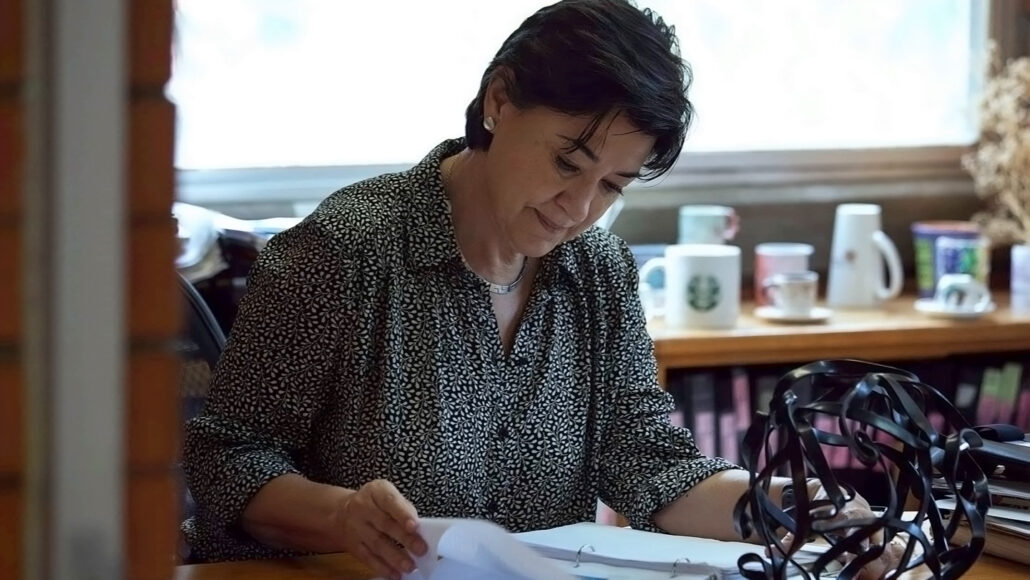Mexican virologist Susana López Charretón uncovered rotaviruses’ secrets
Her research contributed to the development of life-saving vaccines


Susana López Charretón, photographed here by daughter Alejandra Arias, has been studying rotaviruses for more than four decades.
COURTESY OF S. LÓPEZ CHARRETÓN
AUGUST 29, 2023 AT 11:00 AM
Susana López Charretón is among Mexico’s leading virologists. She has been awarded the UNESCO–Carlos J. Finlay Prize for Microbiology and the L’Oréal-UNESCO For Women in Science award. She’s the only female Mexican scientist to have edited the Journal of Virology.
But winning prizes isn’t what inspires her science and her career. “Prizes and recognition are just a consequence,” she says. “Actually, I’m mostly embarrassed by them.”
Instead, it’s curiosity and a thirst for understanding and solving problems that drive her. “To me science is a way of living, something that fulfills me completely,” López Charretón says.
Around that time, López Charretón also met Carlos Arias, who was doing a master’s degree in Espejo’s lab. She stayed on at UNAM for a master’s degree and Ph.D., and she and Carlos Arias went to California from 1981 to 1983 for a research sabbatical in the Caltech laboratory of biologist James Strauss. There, they continued the work they had begun with Espejo. “This was my path to realize that virology was what most interested me,” she explains.
Back in Mexico, the couple formed a research group at the Institute of Biotechnology at UNAM and continued to study rotaviruses. At the time, most scientists thought rotaviruses invaded cells in a relatively simple process, with just one viral protein interacting with one cell receptor.
Instead, the group showed, rotavirus entry into a host cell is mediated by multiple steps and interactions with the surface of the cell. These steps take place in a specific part of the cell’s plasma membrane known as lipid rafts and end with the virus entering through endocytosis, a cellular process in which a substance is surrounded by an area of the cell’s membrane to form a vesicle that transports the substance into the cell.
López Charretón’s group also described the molecules that help rotaviruses beat the body’s innate antiviral system. Two viral proteins that play multiple roles directly interact with the cells of the intestine and prevent the antiviral response. This finding could explain why the viruses are so specific in the cells they infect.
Theirs is now the prevailing model describing how rotaviruses invade cells. “All viruses establish these types of battles with their host cells, and the amazing part is that each virus has different tools to do it,” López Charretón says.
López Charretón continues to work on rotaviruses, trying to figure out how they pervert the entire cellular machinery within intestinal cells. But in the early days of the COVID-19 pandemic, she was part of a group of virologists charged with monitoring and sequencing the coronavirus strains circulating in the country.
She and other virologists founded the multi-institutional Genomic Surveillance Consortium of Mexico. Though the group planned to continue monitoring other viruses following the pandemic, it has disbanded because of a lack of financial support from the government.
The effort emphasized for López Charretón the importance of growing Mexico’s pool of scientists. “With the pandemic, it became obvious that we don’t have enough people who are experts in virology in order to face these types of problems,” she says.
A mentor for aspiring scientists
She has worked to build that scientist pipeline throughout her career, by helping to train young virologists who are just as driven as she is. “[As a scientist,] you also have the joy of sharing your passion with your students, watching them grow and becoming very rigorous in their craft,” she says.
Besides being a leading scientist, says Greenberg, one of López Charretón’s most outstanding traits is her willingness to teach. Three of her students have gone on to do postdocs in Greenberg’s lab. He has observed how close they are to her and how well trained they are; he says she’s probably the most caring and attentive mentor he has ever met.
Liliana Sánchez Tacuba, who did a Ph.D. with López Charretón before moving on to Greenberg’s lab for a postdoc, agrees that, unlike a lot of lab leaders, López Charretón makes time to dedicate herself to teaching. “I couldn’t have had a better tutor,” Sánchez Tacuba says. “She is my academic mom and every time I have difficulty or doubts, I still contact her.”
Sánchez Tacuba comes from a small, low-income community in the state of Guerrero, Mexico, where most women study only through primary school. Today, she is a research scientist in the microbiology division at Vir Biotechnology, an American immunology company focused on treating and preventing infectious diseases.
All of this was possible because of López Charretón, Sánchez Tacuba says, and the time and effort López Charretón dedicated to mentoring her. “She changed my life,” Sánchez Tacuba says. “Every time I’ve second-guessed myself, I’ve thought that if Susana López believes in me, then I must be able to do it.”

 SEND A MESSAGE TO YOUR MP BY CLICKING HERE
SEND A MESSAGE TO YOUR MP BY CLICKING HERE